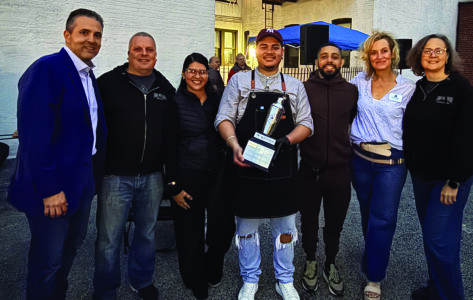The Cato Institute, a conservative think tank, 20 years ago, opined that we don’t need campaign finance regulation. The conservative group scoffed at the notion that “money buys elections” or that unlimited spending is “incompatible with a functioning democracy.”
We are living their conservative theory today. However, more money buys more advertising and better advertising. We live in an age in which wealthy individuals through organizations may spend unlimited amounts of money to obtain political power since the Supreme Court held in Citizens United that election spending limits on corporations, organizations and groups were unconstitutional.
The conservative billionaires Charles and David Koch spend incredible amounts of money on political campaigns around the country. A group supported by the Koch brothers is endorsing a candidate in a local election.
The National Federation of Independent Businesses (NFIB), an advocacy group for small business owners based in Washington, D.C., endorsed Senator Marty Golden over James Kemmerer in the State Senate race. The NFIB is a self-described nonpartisan voice for small businesses but the group has a lopsided record of lobbying for conservatives and conservative causes. The Center for Media and Democracy reported that nearly all NFIB campaign contributions go to Republicans.
The NFIB was the named plaintiff in the Supreme Court lawsuit to find the Affordable Care Act unconstitutional. It received millions from a Republican PAC linked to Karl Rove. It also received more than $2.5 million, including its largest single contribution, from political organizations linked to the Koch brothers, Charles and David, called “the biggest crooks in the oil industry” by their own brother William Koch.
The allegation has some credence since a 1989 Senate report of an investigation into Koch oil production on Native American land declared, “Koch Oil …is the most dramatic example of an oil company stealing by deliberate mismeasurement and fraudulent reporting.”
In 1995, Koch Industries was sued for causing more than 300 oil spills in five years. Its corporate culture has been dominated by cost reduction. It developed a trademarked business philosophy: Market-Based Management. It is an aggressive policy that rewards risk-taking and encourages managers to keep costs and delays to a minimum. It also encourages accidents and disasters.
In 1996, two teens burned to death, in a fireball, fueled by butane leaking from a Koch Industries pipeline. The pipeline decommissioned for three years was put back into operation although it failed a pressure test. It received repairs and was put back into operation. The corporate philosophy had been followed: maximize profit “through the elimination of waste.”
A former manager testified that fines and litigation were cheaper than repairs. A Texas jury awarded a $296 million verdict but the family settled for an undisclosed amount. Koch Industries subsequently “unwound” most of its pipeline business to avoid liability. In 2000, a Koch refinery released more than 90 tons of benzene into the atmosphere according to state regulators and a $20 million fine was assessed.
Charles Koch possesses strong political views. He once said that government regulation was totalitarian and a business leader should “resist whenever and to whatever extent you legally can in the name of justice.” He now can and does spend tens of millions of dollars every year to resist government regulations and policies that he does not like. If he can change a law, it becomes easier for him to resist regulation.
In Arizona, Americans for Prosperity spent $650,000 of Koch money for television ads attacking incumbent Democrats: Representative Ann Kirkpatrick and Representative Ron Barber. House Majority, a Democratic PAC, has run television ads, to counter the attack ads which it characterized as efforts to mislead voters and defeat incumbents paid for by out-of-state billionaires who oppose minimum wage reform and propose Social Security privatization. AFP spent more another $20 million on television ads targeting House and Senate Democrats for defeat after passage of the Affordable Care Act.
Where will this all lead? The wealthy have a right to promote an agenda for themselves even if it hurts working and middle class families but there must be a limit on spending. There are reasonable limits on speech so why can’t we adopt reasonable limits on the amount of money that can be expended in an election?
Imagine if the billions spent on getting politicians elected could be directed to transportation and school construction. Most Americans value schools and trains and clean air and clean water more than they do decreased government spending or increased profit for billionaires.
The NFIB endorsement of Senator Marty Golden raises eyebrows since the group obviously is more than a mere advocate for mom and pop businesses on Main Street. Mr. Golden should put any questions to rest on his opinion of the corporate history and political philosophy of the Koch Brothers since they now share an association through the NFIB.
The big business philosophy of the Koch Brothers is antagonistic to the core values of the working class and middle class families of Bay Ridge which Mr. Golden should recognize.
 On the Avenue: ‘Gin Merchant’ drink coming to a bar near you!
On the Avenue: ‘Gin Merchant’ drink coming to a bar near you!  On the Avenue: Community golfs ‘fore’ good cause
On the Avenue: Community golfs ‘fore’ good cause